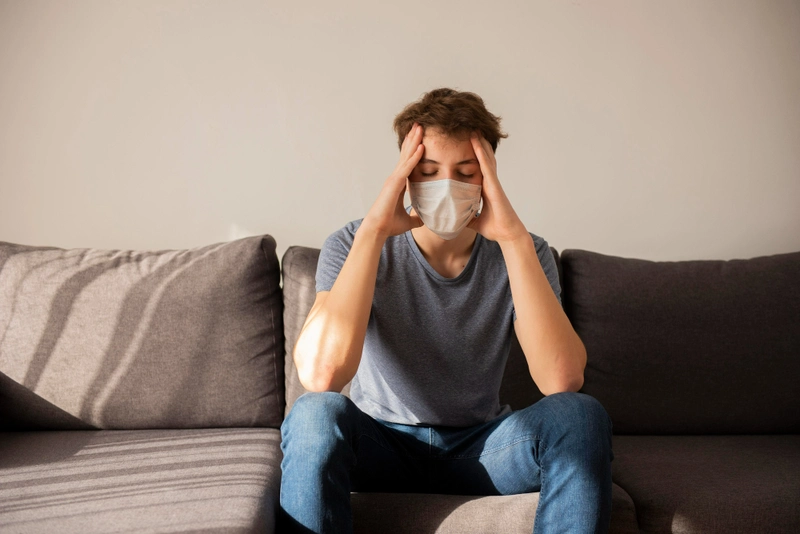- Published on: Aug 29, 2023
- 2 minute read
- By: Secondmedic Expert
Boosting Your Recovery: 5 Nourishing Foods To Aid In Dengue Recuperation
As you embark on your journey towards dengue recuperation, questions may naturally arise about how to best support your body's healing process. You might find yourself wondering, "What foods should I focus on for a quicker recovery?" or "How can I ensure I'm getting the right nutrients during this period?" These questions are signs of your commitment to your well-being, and they're an essential part of navigating this phase. Whether you're seeking clarity on the role of hydration, the benefits of immune-boosting fruits, or the significance of protein and omega-3 fatty acids, remember that asking these questions is a proactive step towards understanding your body's needs. As you explore the world of dengue recuperation through nourishing foods, don't hesitate to seek answers and insights that resonate with your unique recovery journey. Your questions are the compass that guides you towards optimal healing.
Recovering from dengue fever demands more than just time—it calls for a strategic approach to healing. While the recovery period can vary, there's no denying that the right foods play a pivotal role in helping your body bounce back. If you're on the path to dengue recuperation, here's your guide to a nourishing diet that can make a significant difference. Let's explore the top 5 foods that can accelerate your healing process and restore your vitality, ensuring a smoother journey towards full health.
Understanding Dengue Recovery:
Dengue fever, caused by the Aedes mosquito, can leave you feeling drained and weak. The recovery period can span a few weeks, during which your immune system fights to regain its strength. While rest is crucial, your diet can complement your body's efforts by providing essential nutrients that aid in recovery and boost immunity.
1. Hydration Heroes:
First and foremost, staying hydrated is key. Water, coconut water, and clear soups can help replenish the fluids lost during fever and prevent dehydration. Hydration also supports your body's detoxification process, flushing out toxins and promoting healing.
2. Immune-Boosting Fruits:
Citrus fruits like oranges, lemons, and kiwis are packed with vitamin C, a potent antioxidant that aids in boosting your immune system. These fruits not only provide hydration but also support the body's defense mechanisms as it fights the dengue virus.
3. Protein-Packed Foods:
Protein is essential for tissue repair and the production of antibodies that aid in recovery. Incorporate lean sources of protein like eggs, yogurt, and legumes into your diet. These foods assist in rebuilding muscle strength and immunity, which may be compromised during the dengue recovery period.
4. Nutrient-Rich Dark Leafy Greens:
Dark leafy greens such as spinach, kale, and broccoli are rich in vitamins and minerals like iron, which can help combat fatigue—a common after effect of dengue fever. Iron supports the production of red blood cells, helping improve energy levels during recuperation.
5. Omega-3 Fatty Acids:
Foods rich in omega-3 fatty acids, such as fatty fish (salmon, mackerel) and flaxseeds, possess anti-inflammatory properties. Inflammation is a natural response during illness, and including these foods can aid in reducing inflammation and promoting healing.
Personalized Approach to Recovery:
While these foods can undoubtedly support your recovery, it's essential to listen to your body's cues and preferences. Everyone's recovery journey is unique, and what works for one may not be ideal for another. Experiment with these foods and observe how your body responds, adjusting your diet as needed.
Consultation and Timing:
Before making significant dietary changes, it's advisable to consult a healthcare professional, especially if you have underlying health conditions. The timing of these foods matters too. Smaller, frequent meals can be easier for your body to process and utilize during the recovery period.
Stay Patient and Positive:
Dengue recuperation requires patience and a positive outlook. Apart from these nourishing foods, rest and emotional well-being play vital roles in your recovery journey. Surround yourself with a supportive environment and engage in activities that bring joy, aiding in both mental and physical healing.
In conclusion, dengue recovery is a process that demands attention to detail, and your diet is a significant aspect of that process. By incorporating hydrating foods, immune-boosting fruits, protein sources, nutrient-rich greens, and omega-3 fatty acids, you provide your body with the tools it needs to heal efficiently. Remember, each bite you take can be a step towards a stronger, healthier you. Embrace the journey, stay patient, and let the power of nourishment pave the way to a full recovery.
Read FAQs
A. Immune-boosting fruits like oranges, lemons, and kiwis are rich in vitamin C, which supports the immune system during recuperation. These fruits help your body fight off infections and aid in the healing process after dengue fever.
A. Protein is crucial for tissue repair and immune function. Foods like eggs, yogurt, and legumes provide essential amino acids that help rebuild muscle strength and support the body's healing process post-dengue.
A. Omega-3 fatty acids, found in foods like fatty fish and flaxseeds, possess anti-inflammatory properties that can help reduce inflammation in the body. This can be particularly beneficial as your body recovers from the inflammation caused by dengue fever.










